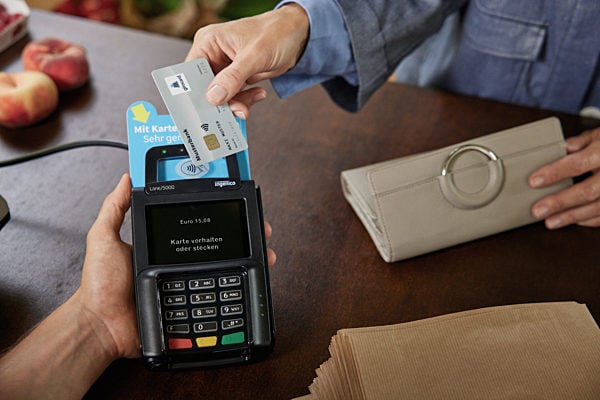US
Bosses to blame for Deutsche Bank crisis: Gabriel
The crisis engulfing Deutsche Bank is the fault of the company's own management, German Economy Minister Sigmar Gabriel has said.
Published: 3 October 2016 09:54 CEST

Sigmar Gabriel on his way to Iran for a trade visit. Photo: DPA
The problems at bank, which has been slapped with an unaffordable $14 billion fine by the US Department of Justice for its role in the subprime mortgage crisis, were the fault of “irresponsible” bosses, Gabriel said.
“I don't know whether to laugh or cry that the bank, which turned speculation into a business model, is now calling itself a victim of it,” Gabriel told reporters, after CEO John Cryan this week blamed speculators for pushing the embattled lender's share price to a record low.
Speaking to reporters on his way to Tehran for a trade visit, Gabriel said Deutsche's woes could be traced back to past mistakes made by the management.
“The scenario is that thousands of people will lose their jobs. They now have to bear the responsibility for the madness carried out by irresponsible managers,” said Gabriel, who is also Germany's vice-chancellor and leader of the Social Democrats, the junior partner in the coalition government.
Deutsche Bank has found itself at the centre of a storm ever since the US Department of Justice last month demanded an unaffordable $14 billion fine over the bank's role in the subprime mortgage crisis. Fears over Deutsche's financial health and speculation that it might need a bailout sent its shares plummeting this week.
Its stock recovered on Friday on a report that the bank was close to a settlement with US authorities to lower the fine to $5.4 billion.
In a further boost to Deutsche's morale, top executives from some of Germany's largest firms, such as Siemens, Daimler and BASF, rallied behind the lender on Sunday and said Cryan still had their trust.
Cryan already announced some 9,000 job cuts last year – nearly a tenth of the bank's workforce – as part of a massive overhaul to improve the Deutsche's profitability in an environment of low interest rates and sluggish global growth.
The German government has strongly denied preparing any rescue plans for Deutsche, while the bank itself has said it does not need any state aid.
Url copied to clipboard!


 Please whitelist us to continue reading.
Please whitelist us to continue reading.